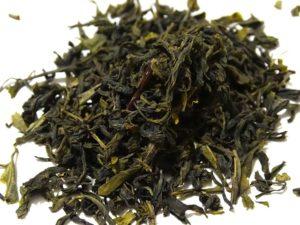It’s kind of weird how we can think that chemicals we conjure up in the lab are necessarily superior to what nature provides – especially as science continues to prove that natural compounds can be just as, if not more, effective.
 Case in point, green tea, which we’ve known for years as a great source of powerful antioxidants, especially catechins. Among other things, these polyphenols – micronutrients that aren’t essential to a plant’s growth yet essential to its health – can play an important role in supporting oral health.
Case in point, green tea, which we’ve known for years as a great source of powerful antioxidants, especially catechins. Among other things, these polyphenols – micronutrients that aren’t essential to a plant’s growth yet essential to its health – can play an important role in supporting oral health.
Just recently, yet another study confirmed green tea’s ability to inhibit plaque build-up and promote healthy gum tissue. In a randomized controlled trial (RCT) – the conventional gold standard in biomedical research – participants rinsed their mouths twice a day with either a 2% green tea mouthwash or placebo. After four weeks, those who used the green tea rinse showed significantly better plaque control and gum health than they had at the beginning of the study. There was no significant improvement in the placebo group.
“So it’s better than nothing,” you might think. “So what?”
Research has shown green tea to be more effective than common pharmaceutical ingredients, as well.
For instance, another RCT published earlier this year in the International Journal of Dental Hygiene compared green tea toothpaste with a paste containing both fluoride and the antimicrobial chemical triclosan. At the end of 4 weeks, both the test (green tea) and control (fluoride-triclosan) groups had better oral health by a variety of measures. But those who used the green tea paste showed even greater improvement in gum health in particular.
The researchers also found more glutathione activity in the gingival crevicular fluid of those who used the green tea paste. Considered the mother of all antioxidants, glutathione is something your body can make for itself – and which it’s been shown to make more of after green tea is consumed. The increased activity suggests a response to the inflammation that characterizes periodontal disease.
Green tea has also been shown to inhibit the growth of the yeast known as Candida albicans, which contributes to both gum disease and the formation of stronger, more resilient oral biofilms on the teeth.
Research suggests that green tea may protect against oral cancer. It may reduce post-surgical pain and lockjaw risk better than the commonly prescribed chlorhexidine. It may even help reduce tooth erosion.
This is not to say that green tea is a panacea. It certainly can’t undo all the damage that poor diet, smoking, drug use and other unhealthful choices can do. But it is powerful and can offer some good support for both your oral and overall health. A few tips to keep in mind:
- Brew your own. The antioxidant content will be much, much higher. Some bottled teas contain less than 1% of the catechins you get from a cup of green tea you brew yourself.
- Don’t steep the tea in boiling water. It destroys the catechins. Aim for 165-170 degrees Fahrenheit.
- Add a little lemon. It’s thought that the vitamin C makes the catechins easier to absorb.
- Don’t add milk or other dairy, which appears to inhibit absorption.
- Drink tea separately from meals. There’s some evidence that green tea may inhibit the absorption of iron and folic acid – two key nutrients for oral (and overall) health.